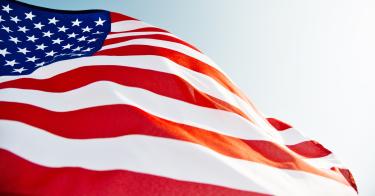Do you consider America to be your home, or just the place you happen to live?
Sept. 22 has long been a meaningful date for me and my family. That’s the day, in 1862, when Abraham Lincoln issued the preliminary Emancipation Proclamation.
This year, as that date approached, I was listening to one of my all-time favorites, Luther Vandross’ “A House Is Not a Home,” when the question popped into my head: Do I consider America to be my home, or just my house?
I know many in our country feel marginalized—as though America is not the loving, accepting, nurturing place that we often dream of. But in real life, no homes are idyllic all the time. There are tensions, stresses, arguments, and divisions—even in loving families.
So, looking at America with realistic eyes, is it truly my home?
If I posed that question to billionaire entrepreneur David Steward, entertainment giant Tyler Perry, or my boss—Kay Coles James, the president of The Heritage Foundation—I’d wager they’d all have the same answer.
Each of these leaders has demonstrated that they view America as not just a house, but a home. Each has lived a real-life success story in this country.
Rooted in humble beginnings, with the odds at their faces, each stepped beyond the walls of their community and the limits of their circumstances to explore, trail-blaze, and ultimately conquer the unknown.
Empowered by emancipation, they have undertaken the all-American pursuit of happiness and left a lasting mark—a legacy, if you will—on the American identity and our nation’s culture.
Today, they stand as beacons of light, a shining example to the next generation of what we can accomplish with our God-given talents, the freedoms we enjoy, the opportunities available in our nation and, yes, a whole lot of determination.
As a community, we must be courageous enough to deal with the tragedies we have suffered as well as our past failures—and to learn from them. But let us also learn to forgive, and to encourage each other to move on boldly to pursue happiness and make the most of the freedoms we enjoy as Americans.
As for how I answer the house/home question…
When I reflect on America’s history, I also think about my family and the legacy of my forefathers and foremothers. Grandma Irene, fully decorated with a third-grade formal education and a Ph.D. in homemaking and rainmaking from the school of wisdom, intentionally pounded history into our household discussions.
We often spoke about Harriet Tubman, Frederick Douglass, and Booker T. Washington and their different roles and approaches to liberty, life, and the pursuit of happiness.
As we slowly rocked on her front porch during the summer nights, she would proudly whisper about Crispus Attucks, the first American to die in the Revolutionary War; Benjamin Banneker, the architectural genius who designed our nation’s capital; and Dr. Daniel Hale Williams, the first person to successfully perform open-heart surgery.
Grandma’s history lessons about great Americans who looked like us convinced me that inalienable rights are the pathway to becoming better than just good, but good for something.
My grandmother believed God anointed us with the power to overcome trials, tribulations, obstacles, disparities, and hopelessness by emancipating ourselves in the walk toward freedom and opportunity.
George Washington viewed freedom much like Grandma did—as a fundamentally internal and spiritual power rather than a physical or political state. He noted:
All through human experience, we find that the highest and most complete freedom comes slowly, and is purchased only at a tremendous cost. Freedom comes through seeming restriction. … Those persons in the U.S. who are most truly free in body, mind, morals, are those who have passed through the most severe training—are those who have exercised the most patience, and at the same time, the most dogged persistence and determination.
Lincoln’s Emancipation Proclamation loosed the chains that had too long bound our people. It opened the door to us enjoying the freedoms that, under the Constitution, belong to all citizens.
With that act, America became a home for my family—one that gives us freedom: the freedom to use our God-given abilities for our own benefit and the freedom to pursue happiness according to our own lights.
The next generation has those freedoms, so let’s invest our time teaching them how make America their home.
This piece originally appeared in The Daily Signal



